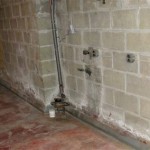Do I Need a Permit to Redo My Basement?
Renovating a basement can be an exciting project, transforming a dark, unused space into a valuable living area. However, before you start tearing down walls and installing new finishes, it's essential to consider whether you need a permit from your local building department. The need for a permit depends upon several factors, including the scope of your project, local building codes, and the specific requirements in your area. This article clarifies the key aspects you need to consider to determine if a permit is required.
Scope of the Basement Renovation
The most significant factor determining whether you need a permit is the scope of your project. Minor renovations that don't involve structural changes or major alterations typically fall under the exemption category. Some examples of projects that may not require a permit include:
- Painting: Repainting the walls and ceiling of your basement is usually not a project requiring a permit.
- Flooring: Installing new flooring, such as carpet or tile, is generally permitted without a permit, as long as it doesn't involve structural modifications.
- Electrical: Replacing existing light fixtures or outlets may not require a permit, but consult with a qualified electrician to be sure.
- Shelving and Cabinets: Installing shelves, cabinets, or other non-structural storage solutions typically doesn't necessitate a permit.
However, any renovation that involves structural changes, plumbing alterations, or electrical work beyond simple repairs may require a permit. These projects include:
- Adding a Bathroom: Adding a bathroom involves plumbing and ventilation requirements that necessitate a permit.
- Finishing a Basement: Finishing an unfinished basement typically involves framing walls, installing insulation, and creating living spaces, all requiring approval.
- Adding a Bedroom or Living Area: Creating a fully functional living area in a basement often involves structural work, requiring a permit.
- Installing a New Fireplace: Installing a new fireplace involves fire safety considerations and may necessitate a permit.
- Major Plumbing Upgrades: Replacing major plumbing lines or fixtures may require a permit to ensure compliance with local codes.
- Adding a Window or Door: Creating openings in walls generally requires a permit for structural integrity and safety reasons.
Local Building Codes and Regulations
Local building codes and regulations vary significantly from one area to another. These codes outline the minimum standards for construction and safety, ensuring structures meet specific requirements to protect the public and ensure safety. Ignoring or violating local building codes can lead to fines, delays, and even the need to demolish or rebuild non-compliant portions of the renovation.
Before starting any renovation project, it's crucial to contact your local building department to inquire about specific permit requirements for basement renovations. The building department can provide you with the necessary application forms, fees, and guidelines for submitting a permit application.
Benefits of Obtaining a Building Permit
While obtaining a permit may seem like an added step, it offers several benefits that protect your investment and ensure the safety of your home. The benefits of obtaining a permit include:
- Ensured Safety: By adhering to building codes, permits help ensure the safety of your home and its occupants. This includes fire safety, structural integrity, and electrical and plumbing compliance.
- Increased Home Value: A properly permitted renovation contributes to the value of your home. A permit provides proof that the work was done to code, which reassures potential buyers during inspections.
- Protection Against Legal Issues: If a homeowner or their family members are injured due to unsafe conditions or structural problems during a renovation, a homeowner without a permit may be held liable for legal expenses.
- Peace of Mind: Knowing your renovation project meets local standards provides peace of mind and reduces the risk of costly rework or legal problems.
It's essential to understand that the responsibility for obtaining a permit rests with the homeowner. Leaving this task to a contractor doesn't absolve the homeowner of the responsibility. If a contractor performs work without a permit, the homeowner may be liable for fines and penalties.
By understanding the scope of the project, consulting local building codes, and obtaining a permit when necessary, you can ensure a successful and safe basement renovation project. Remember, it's always prudent to err on the side of caution and consult with your local building department to determine the specific requirements in your area.

Do You Need A Permit To Finish Basement Angi

Do You Need A Permit To Finish Your Basement Or No

Do You Need A Permit To Finish Your Basement Or Not

Do I Need A Permit To Remodel My Unfinished Basement

Do I Need A Permit To Renovate My Basement In Ontario Renovation Services

What Happens If I Finish My Basement Without A Permit 2025 Today S Homeowner

Do You Need A Permit To Finish Basement R S Basements

Do You Need A Permit To Finish Basement Enviroquest

Do You Need A Permit To Finish Basement Angi

Is A Permit Required To Remodel Or Finish Your Basement







